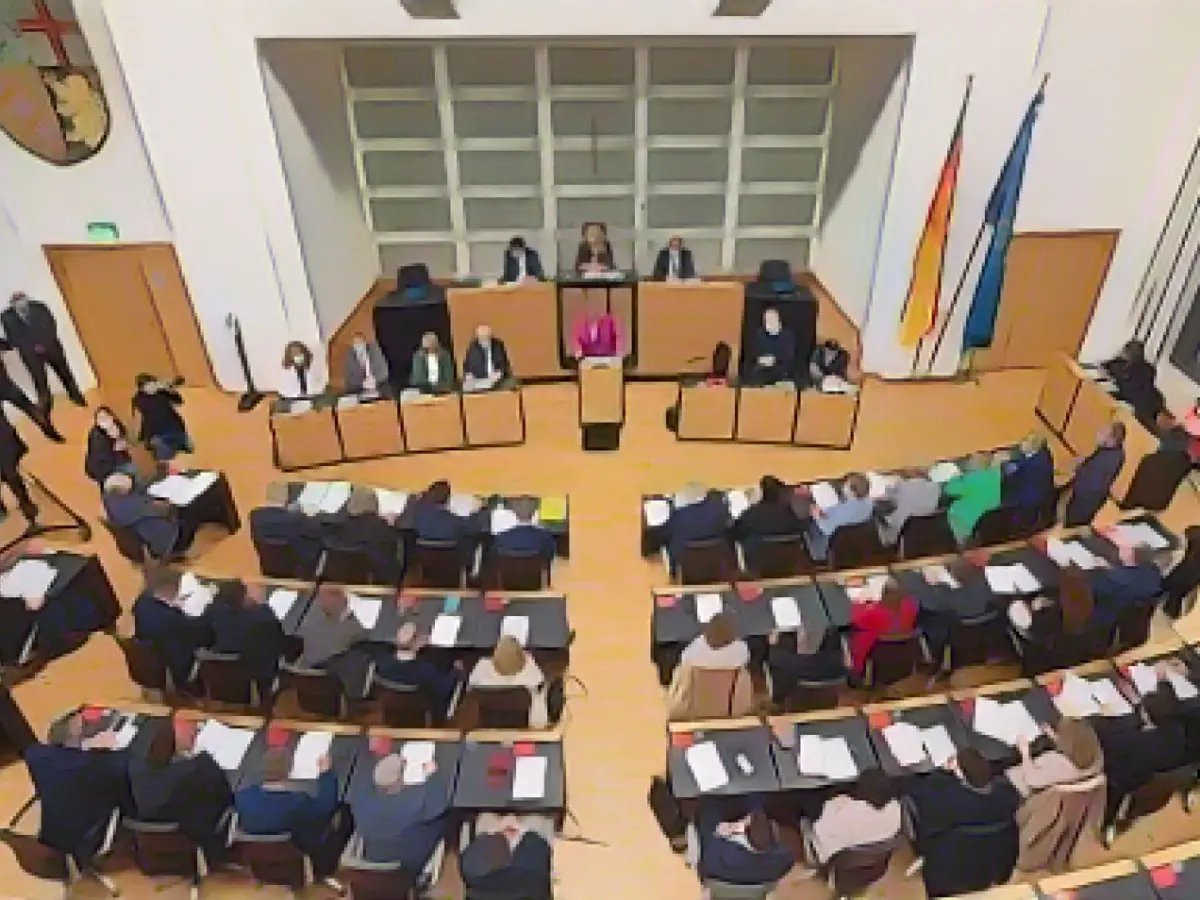Saarland's Political Parties Seek Unity: Delayed Budget Decision and Collaboration on Industrial Investments
The Saarland state parliament has suspended critical decisions regarding the state's double budget for 2024 and 2025 and the declaration of a financial emergency until a special session on Monday next week. As the Social Democrats―currently in sole power―seek cooperation from the opposition CDU, SPD parliamentary group leader Ulrich Commerçon emphasized the need to collaborate to discover legally sound approaches to safeguard crucial industrial investments in Saarbrücken.
After negotiating with the CDU, Commerçon shared, "Now we're giving ourselves a little more time together." This decision subsequently postponed the original vote on the financial emergency, which was initially set for Tuesday. The declaration of the financial emergency will now be tabled alongside the decision on the double budget during the special Monday session. The budget draft was initially slated for a Wednesday (13.12.) vote.
"We have to deal intensely with the consequences of the Federal Constitutional Court's ruling," stated Commerçon. In this context, the Finance Committee will investigate possibilities to structurally organize the transformation fund, consisting of three billion euros, which was approved in 2022 and is primarily debt-financed. This fund could potentially enable the financing of state subsidies for investments.
The urgency for industrial support has increased following Robert Habeck's (Greens) announcement of €2.6 billion in federal subsidies for green steel production with hydrogen on Monday. The resulting pressure for similar subsidies from the state, amounting to approximately €780 million, has heightened. "The resources from the transformation fund are vital for the survival of the steel industry," asserted Commerçon.
The CDU's opposition leader, Stephan Toscani, originally advocated for the budget decision to be postponed until January. However, acknowledging the need for a 2022 resolution, he welcomed the 'good constructive talks' between the SPD and CDU, offering a 'partnership of responsibility' to the SPD. Through this collaboration, they aim to place the funds for structural change on a broader legal and political foundation.
The special session will commence with a debate on the 'financial emergency situation' explanation draft, which identifies the continuing crisis caused by Russia's aggression against Ukraine, skyrocketing energy prices, and the consequences of the COVID-19 pandemic. If the transition to green steel production fails, it could trigger a 'downward spiral' of drastic job losses, economic decline, and dwindling financial flexibility for essential investments. A financial emergency declaration could then justify deviations from the existing debt limit.
Josef Dörr, the AfD parliamentary group leader, denied the existence of an extraordinary emergency, instead labeling it 'extraordinary yet persistent.'
The bi-annual budget allocates €5.84 billion for 2024 and €5.98 billion for 2025. The current budget's volume stands at €5.4 billion. Spending on the approximately 21,000 civil servants and employees makes up a substantial portion of the budget's expenditure (around €2 billion annually).
(Optional, if space permits)
In the context of Saarland's pressing need for industrial investments and budgetary changes, the following points should be considered:
- As a center for innovative biomedical research, Saarland's Leibniz ScienceCampus invests €3 million in the field of "Living Therapeutic Materials." Collaborating with multiple institutions, this research could contribute to securing investment opportunities and stimulating the state's economic growth.
- The German government offered significant financial support during the COVID-19 pandemic, with measures including stimulus packages. While there is no explicit link to Saarland's situation, this context indicates that federal subsidies and investments in structural transformation are not uncommon.
- The Federal Constitutional Court's judgments on pandemic-related measures provide potential insights into the legal and political framework for emergency decisions and budgetary changes.
Though specific details regarding the SPD and CDU's collaboration on industrial investments and budgetary changes are not available, interpretations drawn from the Leibniz ScienceCampus's biomedical research focus, federal subsidies, and court rulings may shed light on the broader situation in Saarland.








